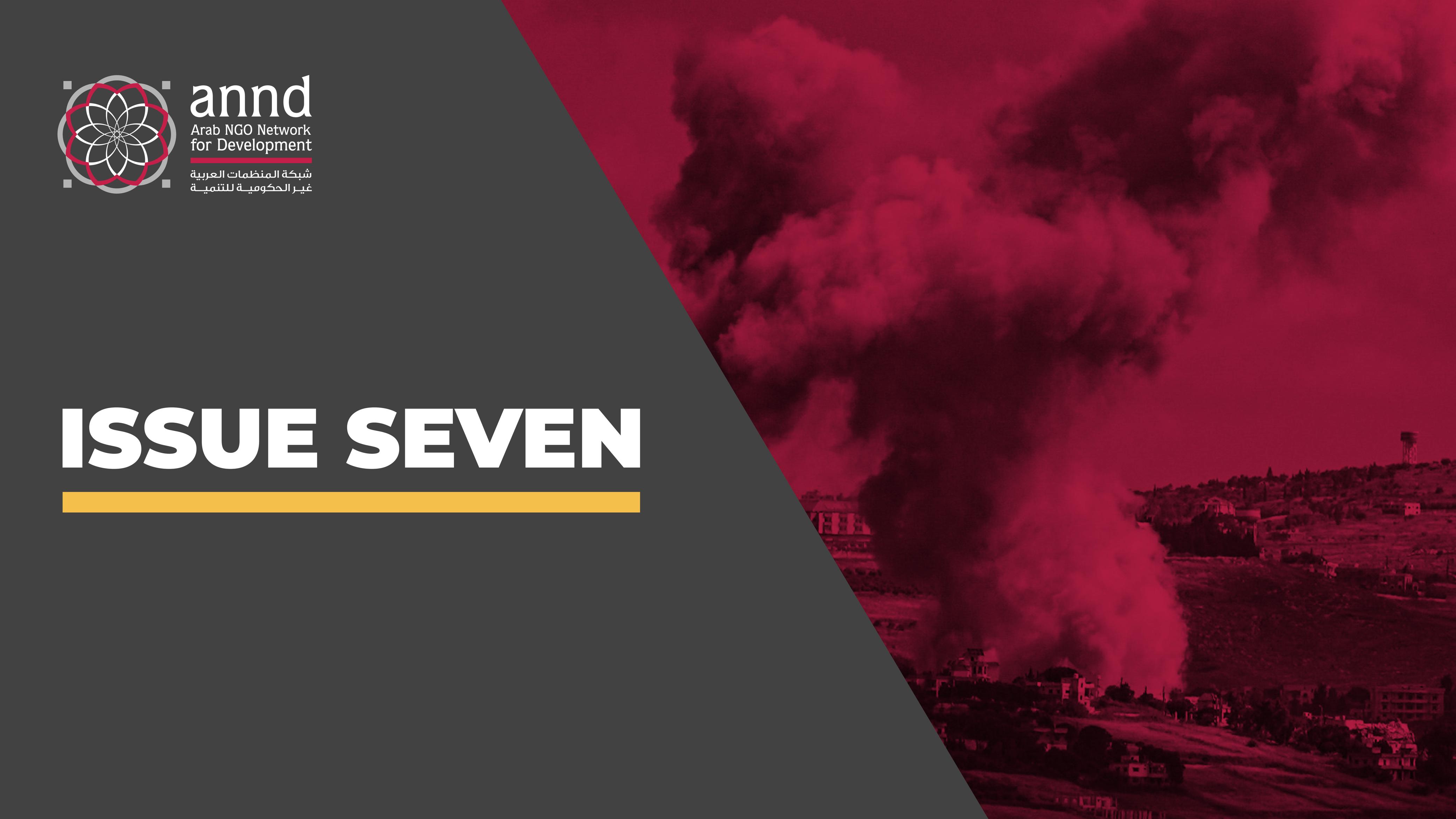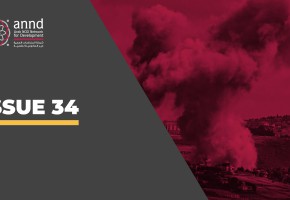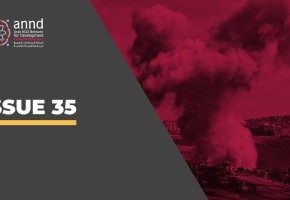A Region on Fire
Issue Seven - October 3, 2024
Israel Implements A Scorched-Earth Policy Across Most of Lebanon After Gaza
The Israeli war on Gaza and Lebanon continues, violating all international laws, churning out more victims, injuries, and destruction.
According to a statement by the Lebanese Ministry of Health on Thursday evening, the total toll from Israeli attacks on Lebanon since October 8, 2023, stands at 1,974 martyrs, including 127 children and 261 women, with an additional 9,384 wounded.
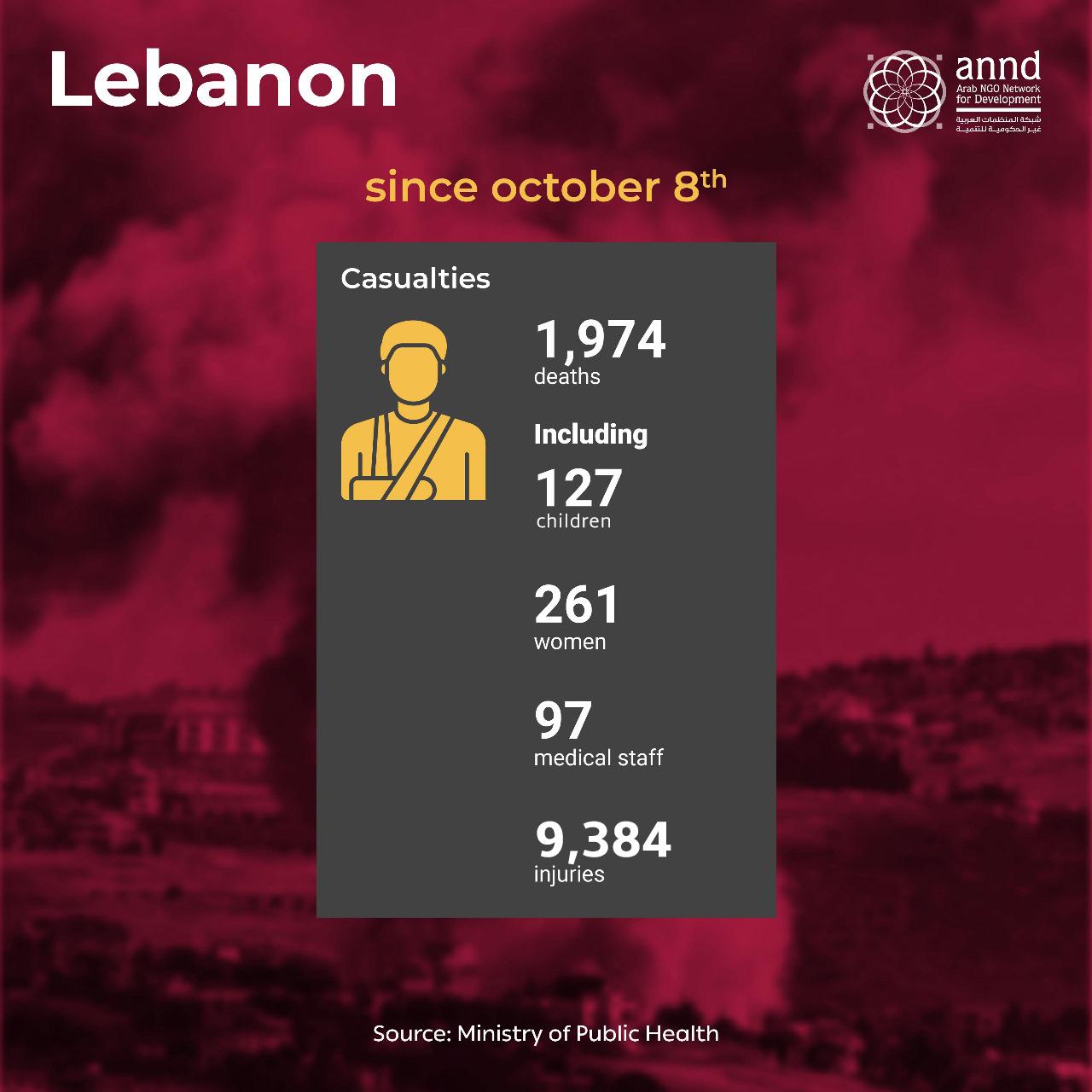
Israeli attacks have killed more than 40 rescuers and firefighters over three days, bringing the total to 97 martyrs from medical and emergency crews as a result of Israeli airstrikes since the hostilities began. Dozens of medical centers have also been damaged. According to the World Health Organization, 28 health workers in Lebanon were killed in the last 24 hours. The WHO Director-General stated that many health workers are fleeing their workplaces due to the bombardment, severely limiting mass trauma management and continuity of health services.
This scenario has been perpetuated for a year in Gaza. The Israeli military campaign, which amounts to genocide, continues in the besieged strip, resulting in at least 41,788 Palestinian deaths. According to the daily statistical report from the Ministry of Health, Israeli forces committed eight massacres against families in Gaza in the past 24 hours, with 99 dead and 169 injured reaching hospitals. The number of injured since October 7, 2023, has risen to 96,794.
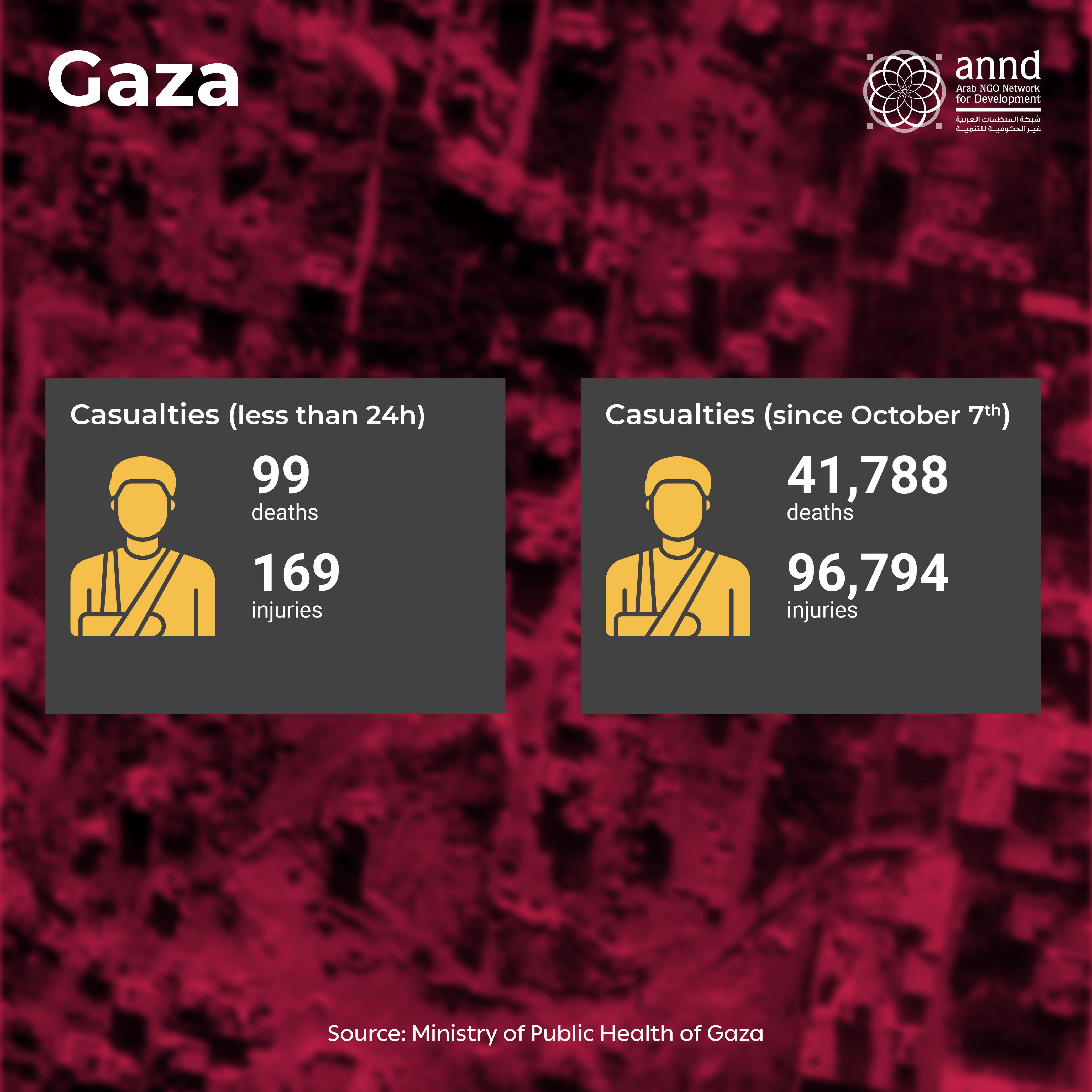
Lebanon: Battlefield Developments
Israeli airstrikes on Lebanese towns and villages continued into the early hours of Friday morning (October 4, 2024), targeting southern villages, the southern suburbs of Beirut, and several villages in the Bekaa Valley, using naval power, and internationally banned phosphorus bombs. The strikes resulted in more casualties, injuries, and widespread destruction. Israel announced it had targeted Hashem Safieddine, the potential Secretary-General of Hezbollah and successor to Hassan Nasrallah, who was reportedly in a fortified underground location.
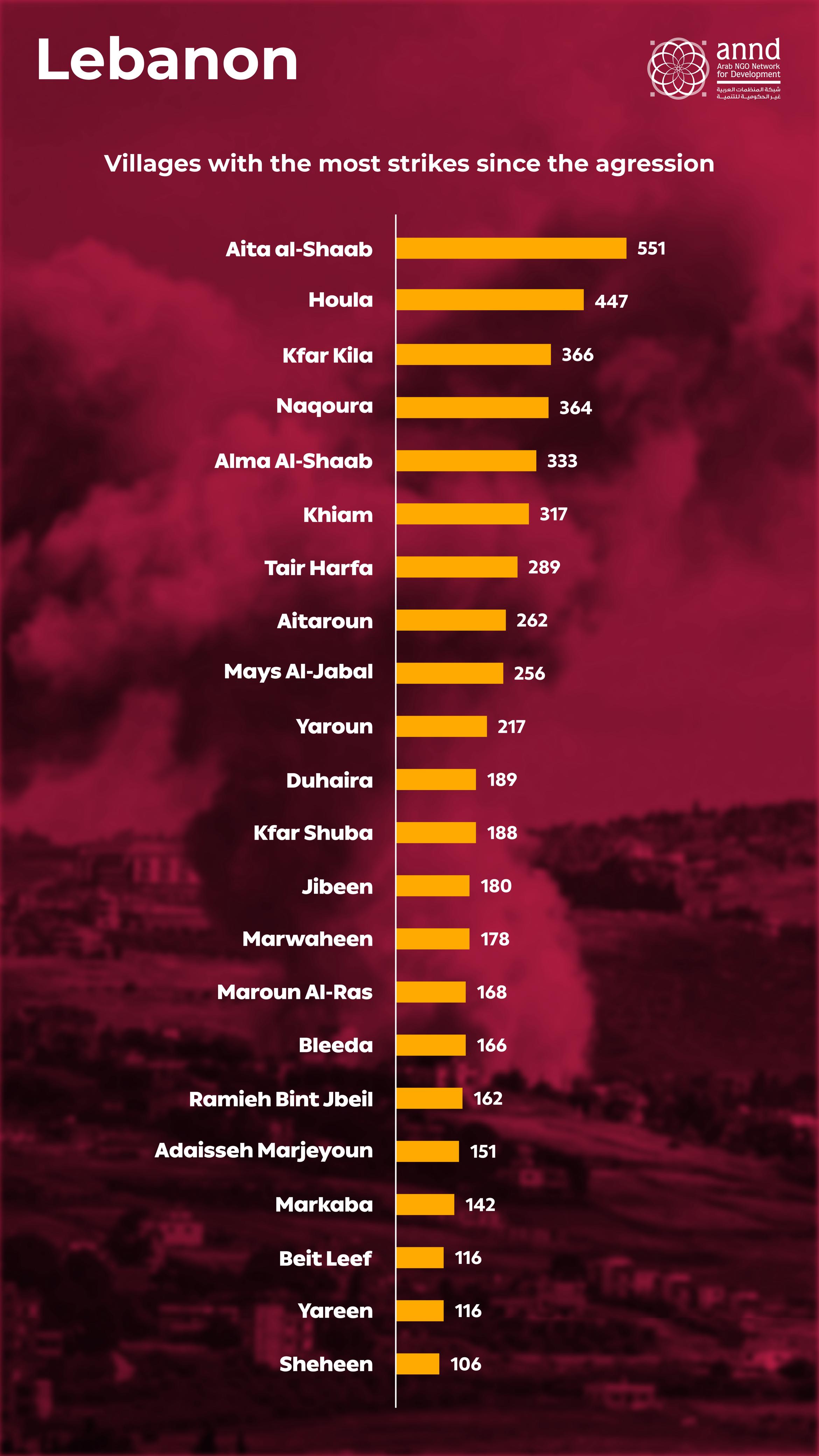
In response, Hezbollah announced that it had thwarted Israeli advancement attempts, detonating three explosives in a group of Golani Brigade soldiers who infiltrated the outskirts of Maroun Al-Ras. Hezbollah also claimed several operations, including the bombing of the Sakhnin military base in the Bay of Acre.
The Lebanese army announced the martyrdom of a soldier and the injury of another in an Israeli attack while carrying out an evacuation mission with the Lebanese Red Cross in the town of Taybeh, Marjeyoun.
The Israeli army warned the Lebanese government that it would strike the Masnaa border crossing between Lebanon and Syria, which was bombed at dawn under the pretext that Hezbollah was using it to smuggle weapons from Syria to Lebanon. The crossing, through which over 80,000 Lebanese and more than 200,000 Syrian refugees passed, was targeted. Public Works and Transport Minister Ali Hamieh, in his rapid response to the Israeli army’s statement, confirmed that the Masnaa crossing is civilian and subject to international monitoring and security procedures.
The Israeli army, for the third consecutive day, issued a list of 25 Lebanese cities, towns, and villages, most notably the city of Nabatieh, demanding immediate evacuation north of the Awali River until further notice.
Significantly, the Israeli army targeted the town of Kayfoun for the first time, in the ‘Aley region of Mount Lebanon. Additionally, the town of Ma’aysara in Keserwan was hit for the second time since the Israeli escalation began. Israeli airstrikes also targeted Hezbollah’s media office in the Mouawad neighborhood of the southern suburbs of Beirut, one day after the organization conducted a media tour for Lebanese and International journalists in the area.
Lebanon: Political Developments
Following the initiative launched by Prime Minister Najib Mikati, Speaker of Parliament Nabih Berri, and former Minister Walid Jumblatt to coalesce international efforts for a ceasefire based on the implementation of Resolution 1701, deployment of the Lebanese army to the south, and election of a president via consensus among different parties, the Prime Minister met with the Maronite Patriarch, calling on the world to pressure Israel to halt its aggression on Lebanon. He also called on the patchwork of Lebanese political forces to engage in dialogue and set aside political differences.
MP Wael Abu Faour (on behalf of Walid Jumblatt) met with the head of the Lebanese Forces, Samir Geagea, and agreed on a roadmap to resolve the current situation, including the bringing the Israeli aggression to a halt by the implementation of Resolution 1701 and the deployment of the army to the south alongside UNIFIL forces. Abu Faour also met with the leader of the Kataeb Party, Sami Gemayel, who confirmed after the meeting his support for the initiative, stressing the need to agree with Hezbollah in advance on the need to implement the constitution and ensuring the Lebanese state’s sovereignty over all its territories, tasking the Lebanese army as the sole legitimate force responsible for border protection and security.
Former leader of the Progressive Socialist Party, Walid Jumblatt, warned in an interview with al-Modon that “the region is in great danger, and this war on Lebanon, which Israel started, may last for a year or two.” He pointed to the devastation in Gaza and the wanton destruction of livelihoods, which has continued for a year with international complicity, in line with Netanyahu’s insistence to keep the fighting going. He emphasized that Israel has the same objective in Lebanon and enjoys international backing without any real international effort or pressure to reach a ceasefire.
The Lebanese Forces issued a statement expressing readiness to comply with Speaker Nabih Berri’s call to elect a president, rejecting claims in certain media outlets that suggested otherwise.
Some opposition MPs issued a statement from Parliament emphasizing that the humanitarian crisis and the threats to Lebanon’s unity can only be addressed through the consolidation of the Lebanese state and its sovereignty, immediate cessation of hostilities, deployment of the army to the south, implementation of Resolution 1701, and the election of a president based on a consensus policy program that satisfies broad partisan interests.
Humanitarian Aid Becomes a Priority
NGOs that have been active in providing humanitarian aid have called a ceasefire in Lebanon, expressing concern over the growing impact of the conflict between Israel and Hezbollah on civilians. According to the director of ‘Save the Children’ in Lebanon, more than 1.2 million people, or 20% of the population, have been displaced, creating “a crisis of alarming proportions.” Representatives from Amnesty International, Oxfam, Doctors of the World, the International Refugee Organization, and ‘Action Against Hunger,’ described the situation as “horrific.” Families have been forced to sleep in the streets after shelters were bombed and hospitals were overwhelmed with casualties, especially in the targeted areas.
The European Union announced new humanitarian aid worth €30 million for Lebanon to fund emergency food assistance. European Commission President Ursula von der Leyen stated, “I am deeply concerned about the continued escalation of tension in the Middle East. All parties involved [in the fighting] must do their utmost to protect the lives of innocent civilians.”
In a press conference, the Minister of Social Affairs announced that the Ministry, in cooperation with the International Labor Organization and the World Food Organization, will allocate additional funds for the Aman programs (implemented by the Ministry to help 140,000 poor families) and the Aid to the Poorest Families (another program implemented by the Ministry to help 40,000 poorest families), which the Ministry will implement in various Lebanese regions starting October 15.
Aid from Arab countries, Europe, China, and Turkey has also started to arrive.
International and Regional Positions
The Arab League expressed solidarity with Lebanon during an emergency meeting with its permanent representatives in Cairo, warning of the risks of a regional war. The meeting, held at Iraq’s request, stressed the need to counter Israel’s plan to change the Middle East and called for Arab support and initiative for Lebanon in defending its land and people, and ensuring the provision of emergency aid in response to the growing needs that have arisen as a result of the Israeli onslaught.
The Emir of Qatar stated that the international community’s failure to stop the war on Gaza gave the green light for the conflict to expand. He affirmed Qatar’s full support for Lebanon against the brutal attacks and announced urgent humanitarian aid for those who have been hurt and displaced by the ongoing agression. The IMF warned that the escalation of the conflict in the Middle East could have severe economic consequences for the region and the global economy.
Lebanon’s ambassador to Moscow said that Lebanon requested Russia’s diplomatic assistance in resolving the Middle East conflict through intensified diplomatic and political efforts with all parties involved, including the United Nations and other international organizations.
Following Iran’s missile strikes on Israel, Doha hosted a meeting of Asian countries to de-escalate the situation amid concerns that the violence could threaten oil installations. Ministers from Gulf Arab states and Iran attended, indicating that lines of communication remain open between Iran and the Gulf countries.
The UN special coordinator for Lebanon expressed concerns over the situation in Lebanon, tweeting about the widespread fear and destruction caused by the relentless and countless Israeli bombings violently shaking the city [Beirut]. A few days prior on October 1, in a statement issued from her office, she expressed concern for the Lebanese people and the impact of the escalating war on Lebanon.
The War on Palestine
Tensions continue to rise in the West Bank, with the Israeli army carrying out a massacre in Tulkarm yesterday, killing 18 people and wounding many others in a café using warplanes. This massacre followed Israeli attempts to storm the old city and a camp near Nablus, which were met with resistance from Palestinians.
